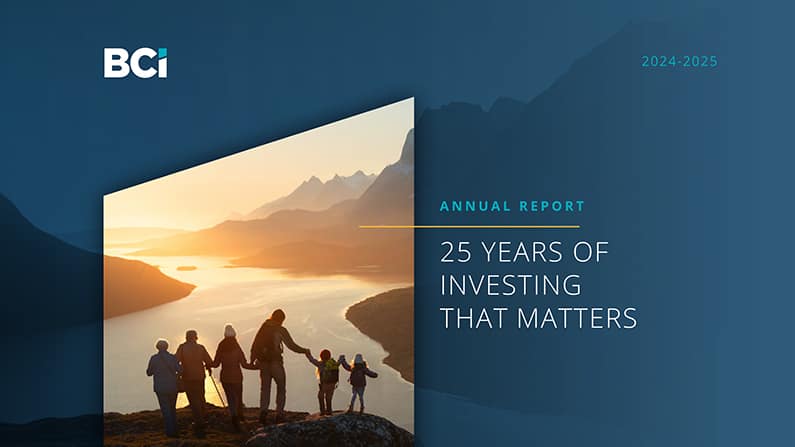October 20, 2025
Sai Devabhaktuni, Senior Managing Director, joins other Private Equity Leaders for a discussion on Portfolio Construction at the 2025 Mergermarket Private Equity Forum
The private equity playbook is being rewritten and reshaping how investors operate. Longer holding periods, slower exit activity, and changing GP behaviours are driving institutional allocators to rethink traditional approaches. At the recent Mergermarket Private Equity Forum in Austin, industry leaders gathered to discuss how they are evolving portfolio construction in today’s environment.
Navigating the slower flywheel
Sai Devabhaktuni, Senior Managing Director at BCI Private Equity, shared how BCI is navigating these market challenges. “The investment – value creation – monetization flywheel is not spinning as fast as it should be.” Put simply, private equity firms are taking longer to exit investments and return capital while simultaneously approaching investors for new fund commitments.
In response to these extended timelines, BCI has recalibrated its capital deployment and is taking a more deliberate approach on both the timing and the sizing of commitments. BCI’s disciplined strategy includes being more selective on investments and active portfolio management that carefully weigh risk exposures across holdings.
Dynamic portfolio management
At the same time, Devabhaktuni outlined three areas where BCI Private Equity is adapting:
- Building strategic GP relationships: Moving toward fewer, deeper partnerships while prioritizing managers with strong value creation capabilities, AI adoption, and robust succession planning. As Devabhaktuni explained, “As we’re deploying capital… that capital will be there for an extended period of time, we need to make sure it’s protected and there’s continuity.” That said, BCI remains open to new partnerships: “If an interesting opportunity comes up and there’s a value proposition, we’ll engage. The bar is higher, but we’ll engage.”
- Implementing broad diversification: The strategy spreads investments across firm sizes, geographies, and capital stack positions to build portfolio stability. “We want to construct a portfolio that is resilient and diverse in terms of the size of private equity firms we engage with—not just large cap but also middle market.” Geographically, the team favors a regional approach, maintaining diversified exposure across markets rather than taking concentrated country-specific positions.
- Flexible, active portfolio management: BCI tactically rebalances its exposure as market conditions evolve. This may include utilizing the secondary markets, altering the risk/reward paradigm by moving up the capital structure or obtaining exposures through continuation vehicles. As it relates to continuation vehicles, BCI takes a case-by-case approach to each opportunity. “There’s no default option from our perspective; everything is bespoke.”
Looking ahead
Managing nearly C$34 billion in assets under management through 80+ investment professionals across Victoria, New York, and London, BCI Private Equity reflects how leading investors are adapting to markets with active portfolio management while maintaining a focus on long-term value creation. Current market dynamics will likely persist with evolving distribution patterns—a reality that prompted Sai to note, “It’ll be interesting to see what happens in the future.” BCI’s agile approach, characterized by flexible deal structuring and disciplined investing, enhances the firm’s ability to respond to these conditions.
Watch a recording of the full panel discussion below:
Mergermarket Private Equity Forum – Austin, October 7, 2025 | Panel: “Institutional investor insights: looking ahead”








